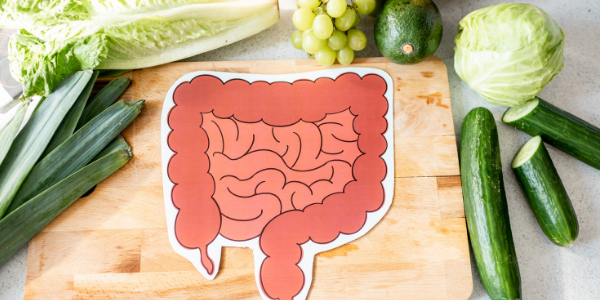Thanks to research into microbiota, gut health is a hot topic. We are learning things that support a great deal of “folk wisdom” and improve on it.
You have probably heard all your life that you should eat your vegetables and eat a diverse variety of foods. We now know that one of the reasons this is good advice is because it supports diversity in the microbiome found in the gut.
The Importance of Gut Health
The nervous system in your gut is so complex that it gets called a “second brain” by some people. Plus, about 70% of the immune cells in your body are found in the gut.
Your gut is the first line of defense for your immune system and a source of psychoactive chemicals that impact both your thoughts and mood. Studies consistently show that diet and exercise are the first lines of defense for health, yet most people do not take diet very seriously as a tool to protect their health.
Eating to Support Microbiota Diversity
The single most important thing you can do is simply eat a varied diet. Most Americans don’t do this.
Some estimates suggest that three quarters of the world’s food supply comes from just twelve plants and five animal species. If you find yourself relying on a short list of staples, you need to start broadening your palate.
The best way to do this is to pursue a mostly plant-based diet rich in fruits, vegetables, beans and legumes. You don’t have to become a strict vegetarian, but you shouldn’t be eating the meat- and wheat-heavy diet that constitutes the standard American diet.

- Artichokes
- Green peas
- Broccoli, brussels sprouts and related vegetables
- Lentils
- Beans, such as kidney beans and pinto beans
- Whole grains that still contain the husk
Fermented foods, like yogurt, kefir and sauerkraut can be beneficial to gut health and can help introduce additional friendly bacteria. This can be especially helpful if you have recently been on a round of antibiotics. But you should also be eating foods that supply prebiotics that are known to help support gut health by bolstering friendly bacteria. Potatoes and rice can provide resistant starch, which is a known prebiotic. Raw fruits, vegetables and whole grains are other sources of prebiotics.
But the right kinds of fats and oils also matter. Many studies show that olive oil is beneficial to both gut and brain health.
Coconut oil is high in medium-chain triglycerides and has long been medically prescribed for certain gut health issues, such as stomach cancer. Coconut oil also does good things for gut flora.
But you should also look to eliminate foods that are known to be harmful to your gut. This includes artificial sweeteners and beef that has been treated with antibiotics.
Raising Awareness About Nutrition
The best way to work on your gut health is to start a food journal. Your initial goal should be to just record everything you eat without judging it. Take at least a week to establish a baseline and then start researching the foods you currently eat. Just read up on those foods.
You can begin that investigation by reading the food label and looking up everything on it. Look up both the words you don’t know and the words you do. Just because you know what a “potato” is doesn’t mean you know what it does to your gut.
It shouldn’t take long for you to make some connections between how you eat and the kinds of health issues you are currently struggling with. Once you have armed yourself with sufficient knowledge, you can begin making better choices to help you optimize your health going forward.
Bottom Line
Unlike other bad habits, like smoking or drinking alcohol, you cannot simply swear off eating. So if you aren’t eating right, the only real solution is to get better informed and learn how to do this better.
What they used to say is true: You are what you eat. Make sure you are eating a diet that supports good gut health going forward.





